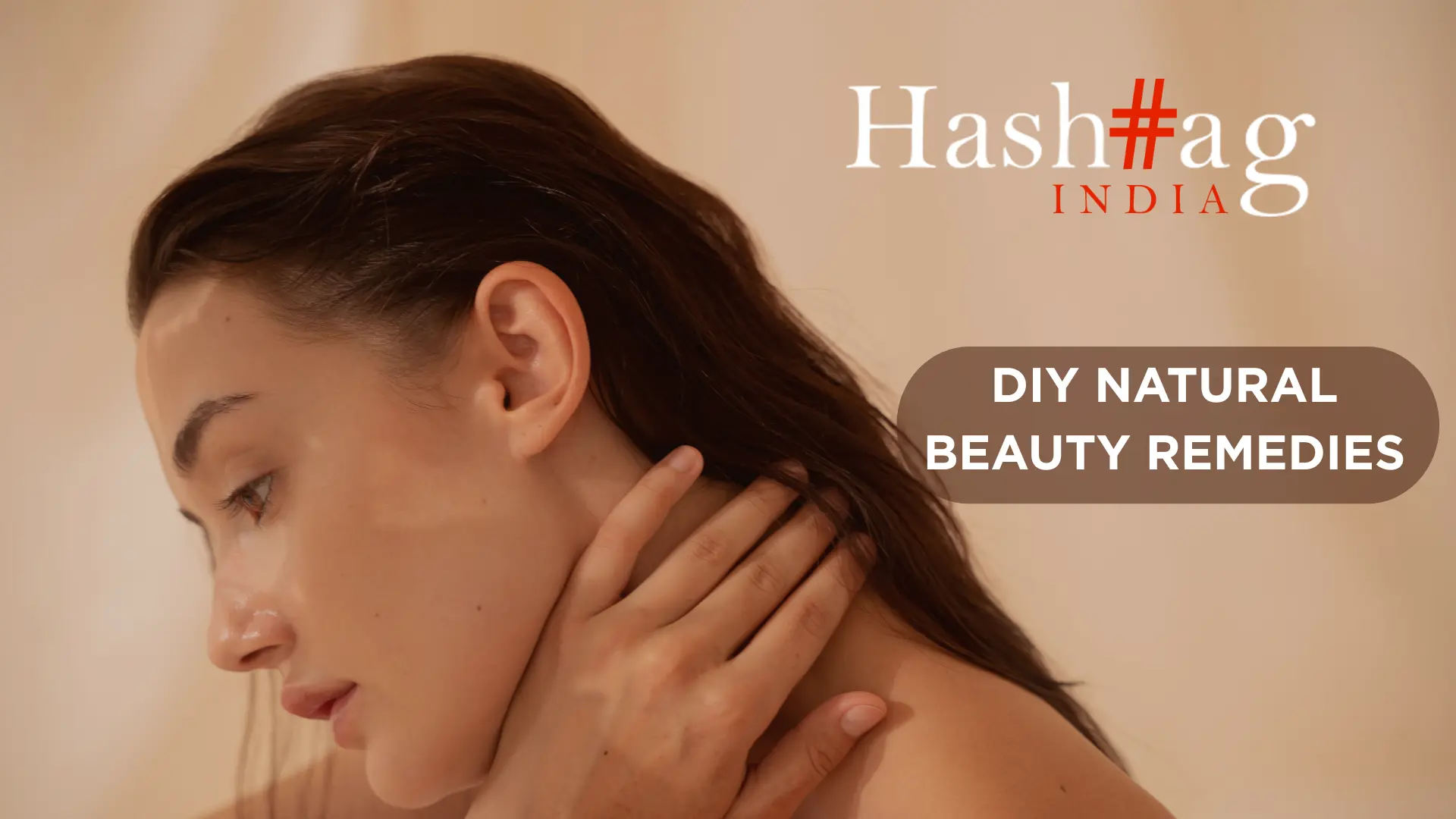In beauty and skincare, two philosophies have garnered significant attention for their holistic approaches and remarkable results: the Korean pursuit of “Glass Skin” and the Indian emphasis on the “Ayurvedic Glow.” Both traditions aim for radiant, healthy skin but diverge in methodologies, principles, and cultural underpinnings. Hashtag Magazine delves into the nuances of these skincare paradigms, offering insights into their routines and philosophies and how they cater to diverse skin needs.
Korean Glass Skin: The Pursuit of Translucent Radiance
Definition and Philosophy
“Glass Skin” refers to a complexion that is exceptionally smooth, clear, and luminous, resembling the clarity and translucency of glass. Originating from South Korea, this concept underscores achieving a flawless, dewy, and youthful appearance through meticulous skincare practices. The philosophy is rooted in prevention, consistent care, and layering of products to maintain optimal skin health.
The 10-Step Korean Skincare Routine
Achieving Glass Skin typically involves a comprehensive multi-step regimen designed to hydrate, nourish, and protect the skin. The steps include:
- Oil-Based Cleanser: Removes makeup, sunscreen, and excess sebum without stripping natural oils.
- Water-Based Cleanser: Eliminates residual impurities and ensures a thorough cleanse.
- Exfoliator: Gently sloughs off dead skin cells, promoting cell turnover and smooth texture.
- Toner: Balances the skin’s pH and prepares it for subsequent products.
- Essence: A lightweight, hydrating liquid that enhances skin regeneration and moisture retention.
- Serum/Ampoule: Concentrated formulations targeting specific concerns like pigmentation, wrinkles, or dehydration.
- Sheet Mask: Provides intensive hydration and delivers active ingredients deeply into the skin.
- Eye Cream: Addresses the delicate under-eye area, combating puffiness and fine lines.
- Moisturizer: Locks in moisture and reinforces the skin barrier.
- Sunscreen: Protects against harmful UV rays, preventing premature aging and pigmentation.
Key Ingredients and Products
Korean skincare emphasizes innovative and gentle ingredients such as hyaluronic acid for hydration, niacinamide for brightening, and snail mucin for repair. Products like the Medicube Collagen Night Wrapping Mask are renowned for delivering “glass skin” results, utilizing components like hyaluronic acid, niacinamide, and collagen to promote a dewy complexion.
Benefits and Considerations
The Korean approach offers a structured routine that can be tailored to various skin types and concerns. Its preventive nature helps maintain long-term skin health. However, the extensive regimen may be time-consuming and could be overwhelming for some individuals. Additionally, sourcing authentic products might pose a challenge in certain regions.
Indian Ayurvedic Glow: Harmonizing with Nature
Definition and Philosophy
The Ayurvedic Glow embodies the radiance that results from a balanced mind, body, and spirit, reflecting overall well-being. Rooted in Ayurveda, India’s ancient system of medicine, this approach emphasizes natural ingredients, internal health, and personalized routines based on the individual constitution or “dosha” (Vata, Pitta, Kapha). The philosophy advocates that external beauty is a manifestation of internal harmony.
Ayurvedic Skincare Practices
Achieving the Ayurvedic Glow involves practices that align with one’s dosha and focus on purification, nourishment, and balance. Key practices include:
- Cleansing with Herbal Powders: Utilizing natural cleansers like chickpea flour (besan) mixed with turmeric to gently cleanse and exfoliate.
- Oil Massage (Abhyanga): Daily self-massage with oils such as sesame or coconut to nourish the skin and improve circulation.
- Herbal Steam (Swedana): Using steam infused with herbs to open pores and detoxify the skin.
- Masks and Packs (Lepa): Applying masks made from ingredients like sandalwood, neem, or rose to address specific skin concerns.
- Diet and Hydration: Emphasizing a balanced diet rich in fruits, vegetables, and hydration to support skin health from within.
- Sun Protection: Using natural sunblocks like aloe vera or seeking shade to protect from excessive sun exposure.
Key Ingredients and Products
Ayurvedic skincare relies heavily on botanicals and herbs known for their therapeutic properties. Ingredients like turmeric for its anti-inflammatory benefits, neem for its antibacterial properties, and aloe vera for soothing are staples. Traditional formulations such as Kumkumadi Tailam, a saffron-infused oil, are revered for imparting a natural glow and addressing pigmentation.
Benefits and Considerations
The Ayurvedic approach offers a holistic regimen that not only enhances skin appearance but also promotes overall health. Its reliance on natural ingredients minimizes the risk of adverse reactions. However, results may take longer to manifest compared to modern skincare products, and understanding one’s dosha requires guidance from knowledgeable practitioners.
Comparative Analysis: Bridging Traditions
Customization and Personalization
Both Korean and Ayurvedic skincare emphasize personalization. Korean routines allow for product selection based on skin type and concerns, while Ayurveda tailors practices to an individual’s dosha, ensuring alignment with their inherent constitution.
Ingredient Philosophy
Korean skincare often incorporates scientifically formulated ingredients alongside natural extracts, focusing on innovation and efficacy. In contrast, Ayurveda strictly adheres to natural, time-tested ingredients, emphasizing harmony with nature and minimal processing.
Routine Complexity
The Korean regimen is structured and involves multiple steps, each serving a specific function. It requires commitment and consistency. Ayurvedic practices, while also comprehensive, integrate seamlessly into daily life and emphasize simplicity and mindfulness.
Holistic Integration
Ayurveda extends beyond skincare, encompassing diet, lifestyle, and mental well-being as integral components of beauty. The Korean approach, though primarily focused on topical treatments, increasingly acknowledges the role of diet and lifestyle in skin health.
Conclusion: Embracing Diverse Paths to Radiance
Both Korean Glass Skin and Indian Ayurvedic Glow offer valuable insights into achieving luminous skin through dedicated care and respect for one’s body. The choice between the two depends on individual preferences, lifestyle, and alignment with the underlying philosophies. Some may find a harmonious blend of both traditions suits their needs, integrating modern innovations with ancient wisdom to create a personalized skincare journey. Ultimately, the path to radiant skin is deeply personal, reflecting an individual’s unique relationship with their body, culture, and the world around them.
































